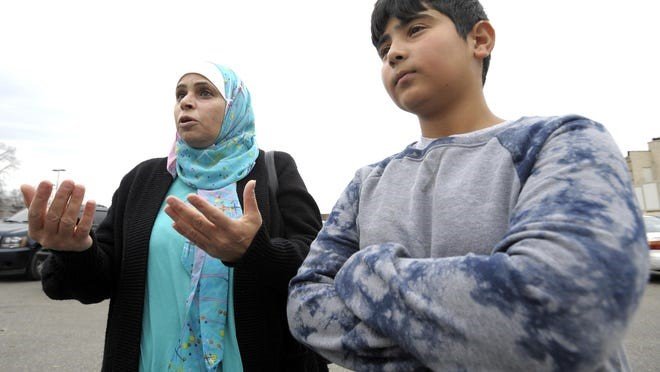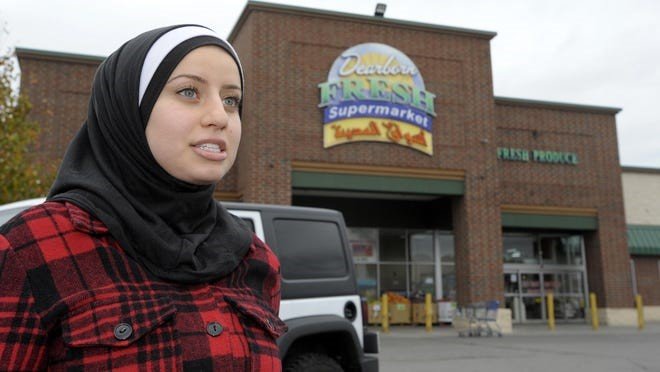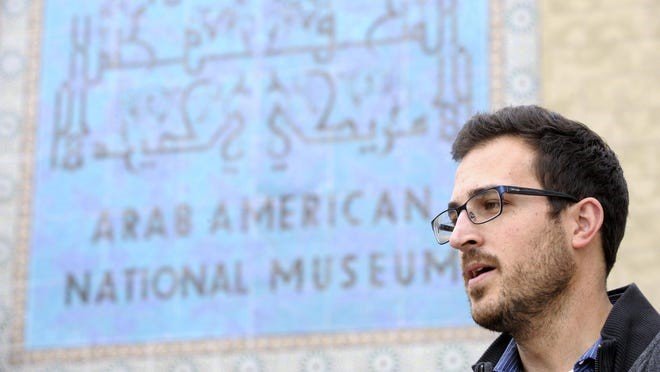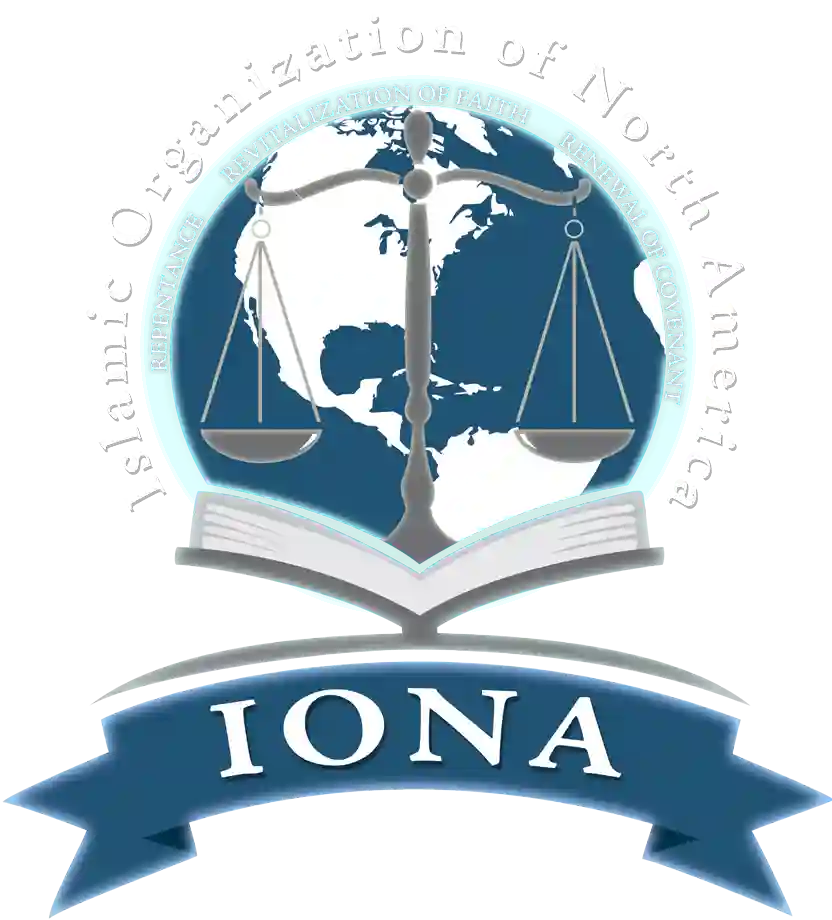IONA in the News
Terror Backlash Alarms Metro Detroit Arabs, Muslims (November 19, 2015)
Local Muslims are warily watching events unfold in Europe and the Middle East amid concerns there could be a backlash at home.

The mood in two of Metro Detroit’s high-population Islamic communities, Dearborn and Hamtramck, is guarded as French military forces bomb Syria in response to last week’s terrorist attacks in Paris by Islamic State extremists, which also deployed suicide bombers in Lebanon.
Between a rush of anger on social media, and memories of the backlash against Muslims after the Sept. 11 terrorist attacks, some local Muslims are fearful of retaliation.
They’re also unhappy at what they consider an unwelcome response to Syrian refugees by some officials, including Gov. Rick Snyder and Oakland County Executive L. Brooks Patterson. And the U.S. House voted Thursday to temporarily block refugees from Syria and Iraq from entering the U.S., an action that drew a veto threat from President Barack Obama.
“Sometimes, I am afraid to go places, even though we are here in Michigan and in the United States,” said Dearborn resident Hind Abuhallawa, who is Muslim, as 13-year-old son Alaa Asad translated. She added she’s worried she or someone she knows could be targeted by someone seeking to retaliate against Arabs or Muslims for the terrorist attacks.
A recent message on Twitter, written by 28-year-old veteran Sarah Beebe, has added to the tension.
“Dearborn, MI, has the highest Muslim population in the United States,” Beebe tweeted. “Let’s (expletive) that place up and send a message to ISIS. We’re coming.”
FBI spokeswoman Jill Washburn told The Detroit News a local law enforcement agency has interviewed the woman, who apologized for the tweet to a local television news station. It’s not yet clear whether any charges will be filed against Beebe, Washburn said.

Malak Farhat, of Dearborn, who is Muslim, said the social media vitriol is concerning.
“I feel like we live in a country where we shouldn’t be afraid. But the things you see on social media scare us,” she said.
The homemaker and Henry Ford College student said she recently was accosted by a stranger on a bicycle while she was driving. She said the man spit on her window, cussed at her, told her to go back to her country and to “take the rag off of her head.”
“Someone might see me walking around my neighborhood and get scared because I wear a headscarf and think I’m (a terrorist),” said Farhat, who said she filed a police report about the incident. “But I’m not.”
Dearborn activist and attorney Majed Moughni said the mood in his community is best described as “fear and anger.”
“There’s the fear that we may be targeted for who we are — especially women who wear an Islamic Hijab (the headscarf worn by Muslim women), who may be targeted for being Muslim,” he said.
“We fear for our safety from those who want to commit acts of retribution for the crimes committed in Paris. Our community is feeling a backlash.”
‘Not what Islam is all about’
At the same time, the community is angry at the terrorists behind the Paris attacks. “They’ve distorted the true religion of Islam and we’re paying the price for it,” he said.
Imam Osman Brkic of the Bosnian American Islamic Center in Hamtramck also denounced the attacks. “What’s happening with those terrorists is not what Islam is all about,” he said.
Masud Khan, secretary for the Al-Islah Islamic Center in Hamtramck, which earlier this month became the first city in the United States to have a Muslim majority on its City Council, said he’s urging congregants to be careful.
“I’m telling our congregation to avoid gathering outside our mosque, so we don’t have any trouble,” said Khan, a native of Bangladesh whose mosque was the center of a national controversy in 2004, when non-Muslim residents opposed their call to prayer. “We’re concerned there might be a backlash. We get along with the other religions in Hamtramck, but nothing is bulletproof. We just need to keep a low profile, and keep watching.”

A plea for tolerance
Imam Steve Elturk, president of the Islamic Organization of North America in Warren, said local Muslims are feeling the repercussions from the Paris attacks, and France’s military response.
“Make no mistake: these events do affect our communities,” Elturk said this week. “We’re making sure our congregations are alert because there are people who want to do harm. For example, after the attacks, we’ve been seeing nails in the parking lots of our mosques.”
Elturk made the remarks at a news conference held at the Islamic House of Wisdom in Dearborn Heights. He was joined by about 15 Muslim and Christian leaders who condemned the terrorist attacks in Beirut and Paris. The group also urged Snyder to reconsider calling for a pause in the effort to bring refugees from Syria to the state, so they can be fully vetted.
“The terrorists want us to be scared,” he said. “But it’s time for us to focus on unity, solidarity and working together. We have a common enemy — terrorists. They’re killing Muslims and Christians. We all need to be strong.”
Local Muslims also say politicians need to be more tolerant toward Syrian refugees.
On Thursday, a small group of activists linked to the national liberal organization Moveon.org brought 4,700 petitions to Snyder, demanding that he welcome Syrian refugees to Michigan.
“Our president and Congress is in charge of deciding who enters the country, not the governor,” said Moughni, the Dearborn attorney. “I also think the governor is playing into ISIS’ hands.
“Isn’t this what they really want? Muslims versus the West? Didn’t we learn anything from Nazi Germany? Is this the message we want to send to the rest of the world?”
The activists also criticized Patterson’s warning to Pontiac’s mayor this week that a city project to house Syrian refugees could allow Islamic State infiltrators into the community.
Imad Hamad, executive director of the American Human Rights Council, said Patterson’s “rhetoric is unfortunate because it falls into the terrorists’ agenda. It contributes to division instead of unity and casts a shadow of suspicion over a whole population of people.”
